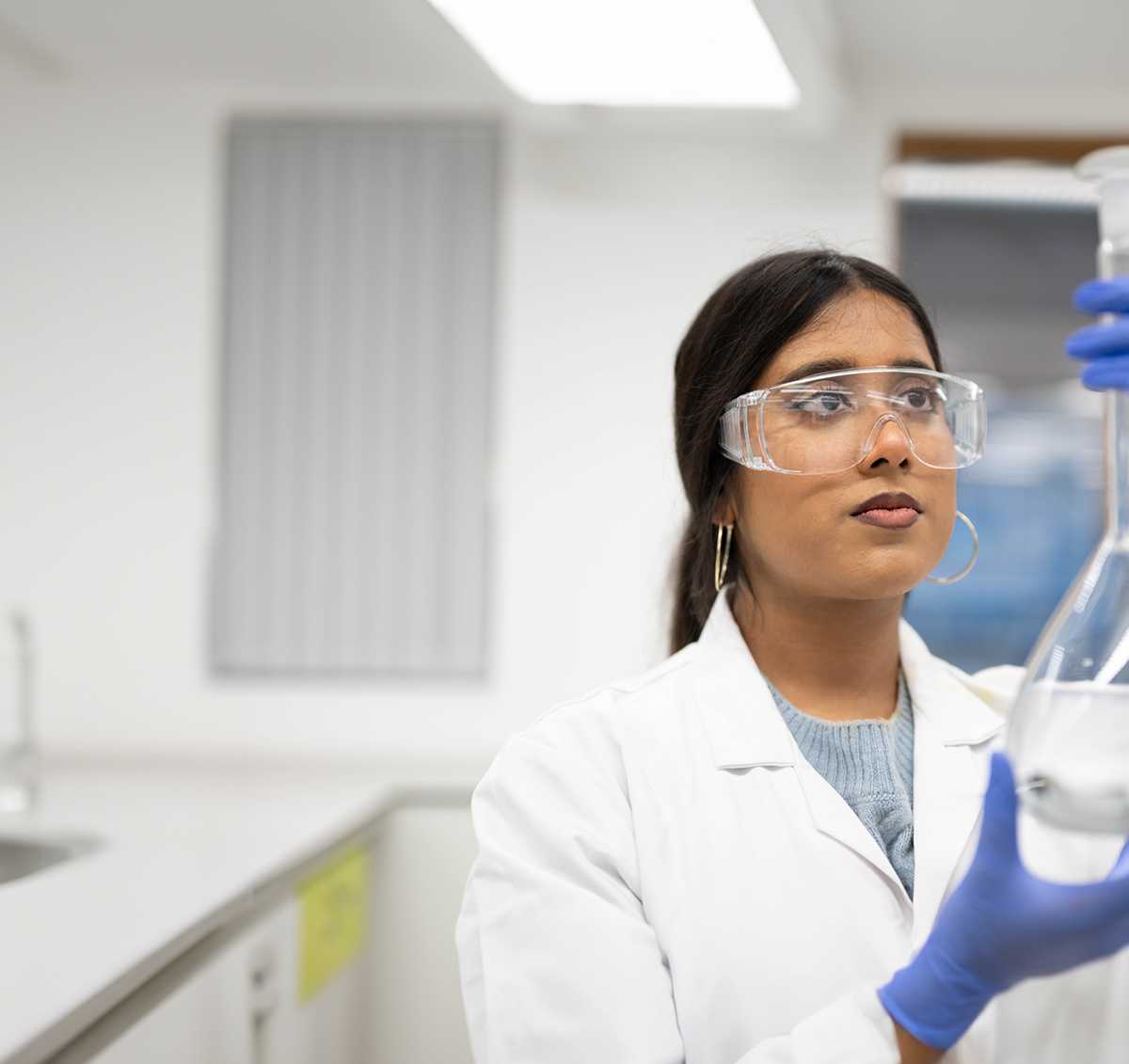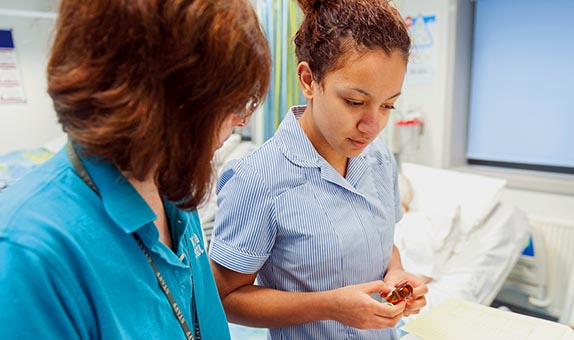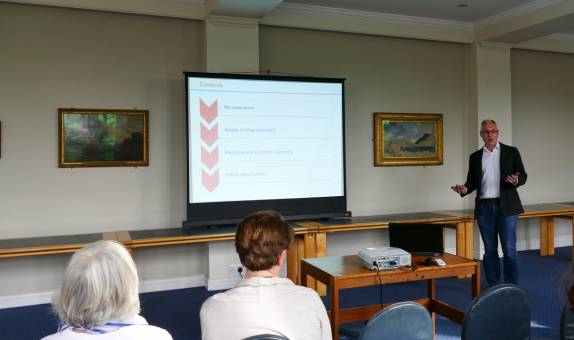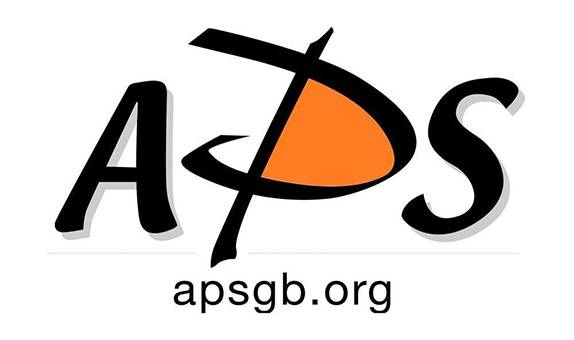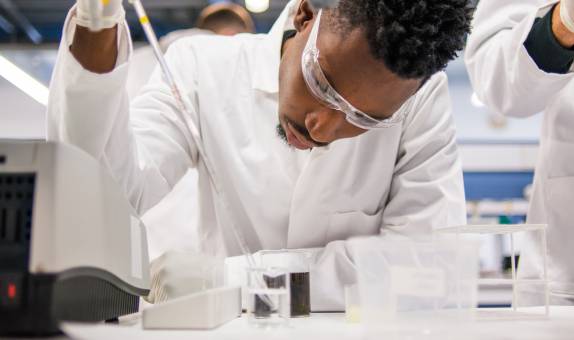Pharmaceutical Science with Regulatory Affairs BSc (Hons)

Teaching Excellence Framework (TEF) Gold award
Our commitment to high quality teaching has been recognised with a TEF Gold rating. The University has received an overall rating of Gold, as well as securing a Gold award in the framework's two new student experience and student outcomes categories.
Why choose this course?
How do we ensure new drugs are safe for the public, correctly evaluated and their use properly regulated? Regulatory Affairs is an area of growing opportunity in the pharmaceutical industry.
This course focuses on public health and the introduction of drugs. You'll learn to produce legal applications for new drug licences, deal with different regulatory authorities and ensure drug safety. The course also offers a practical understanding of the pharmaceutical industry. You'll explore different sources of medicine, how they work and how they are made, packaged and administered.
This course is currently being revalidated for 25/26 entry. We are reviewing our modules to enhance the student-centred learning experience. This includes updating course content to meet industry needs and ensuring you develop the skills needed to become a future-proof graduate.
| Attendance | UCAS code | Year of entry |
|---|---|---|
| 3 years full time | BB21 | 2025 |
| 4 years full time with professional placement | B203 | 2025 |
Please note: Teaching on this course may take place on more than one KU campus.
| Main Location | Penrhyn Road |
Reasons to choose Kingston University
- This was the first undergraduate Pharmaceutical Science degree accredited by The Organisation for Professionals in Regulatory Affairs (TOPRA) in the UK. Consequently, graduates from this degree will be highly sought-after by employers.
- This course was shortlisted for the Guardian University Award for Course Design, Retention and Student Outcomes and the TOPRA Regulatory Excellence Award in Education 2020.
- You'll gain extensive practical experience in new laboratories that have received a £6.8 million investment.
What you will study
The course provides all students with an in-depth knowledge and understanding of the core areas of pharmaceutical science and associated legal framework for the use of therapeutic agents in society. These include learning how to design, synthesise and develop drugs through the study of appropriate examples as well as an understanding of how the regulatory framework is intertwined with practical and scientific considerations. Thus the programme emphasises the acquisition of practical scientific skills as well as up-to-date theoretical knowledge in the area of pharmaceutical science and the regulation of the use of medicines.
Alongside this discipline-specific practical and theoretical knowledge, students will be able to develop their independent learning skills using various sources and be given opportunities to enhance their written and oral communication skills. Such generic skills prepare students for graduate employment in many scientific disciplines, and especially in the area of regulatory affairs where attention to detail around the legislative framework in which drugs are used and distributed is of paramount importance.
The degree prepares students to work in the pharmaceutical industry and public sector. The course covers synthetic chemistry, drug discovery and development, formulation, clinical trials, quality control and analysis, toxicity and safety testing, pharmacovigilance, the mechanism of action of drugs used to treat some of the major diseases (e.g. cardiovascular diseases, cancer and dementia) and regulatory affairs.
Year 1
Year 2
Optional professional placement year
Year 3/4
Year 1 introduces biology, chemistry, and physiology for pharmaceutical science.
Core modules
Introduction to Spectroscopy and Experimental Techniques
30 credits
This module provides an introduction to basic laboratory techniques and procedures such as weighing and volumetry, proceeding to descriptions of laboratory manipulations, elemental analysis and general practical knowledge. You will be introduced to spectroscopic techniques in terms of simple theory, as well as a practical introduction to the identification of simple organic compounds. These compounds will sometimes be synthesised in the course of the practical element of the module, which will also serve to demonstrate laboratory techniques of preparation and purification of these organic materials.
Academic Skills for Molecular Sciences
30 credits
You will gain a thorough grounding in mathematical, presentation, reporting and IT skills to support your scientific progress. This module will help you develop effective learning strategies. It provides the foundation for your personal and career development.
This module will introduce you to Future Skills through engagement with Navigate. You will be supported by themed tutor meetings enabling you to work on tasks to develop your graduate attributes.
Foundation Chemistry
30 credits
This module will refresh your foundation knowledge of the core chemistry concepts required for progress within the field of pharmaceutical science and biochemistry. It includes atomic and molecular structure within various bonding models, the principles of functional group interconversions and synthesis. You will also be introduced to the laws of kinetics and thermodynamics and apply them to simple chemical and pharmaceutical systems.
Bioscience 1
30 credits
This module will cover cell biology and microbiology, particularly with reference to human physiology and the pathological microorganisms affecting it. You will be introduced to the fundamental principles of the biochemical processes that occur within the cell, including prokaryotic and eukaryotic cell structure, basic tissue types, microbial entities and organisms such as viruses, bacteria and fungi.
You will progress from the subcellular level through to the cellular and then to tissues and a few selected organ systems; examining the mechanisms that maintain homeostatic balance.
Year 2 places emphasis on organic and medicinal chemistry and develops practical skills, especially in pharmaceutical analysis - important in relation to the actions and characterisation of drugs. Building on the pharmaceutical chemistry learned in Year 1, you will study the properties and formulation of pharmaceuticals. You will also study the effect of drugs in living systems and the principles of the immune system. There will be an introduction to micro-organisms in relation to human disease, their control and safe working practices. Year 2 explores organic and medicinal chemistry applied to the design and synthesis of drug molecules. Year 2 also focuses on the experimental aspects of pharmaceutical science, developing skills for conducting independent laboratory investigations. There is also the opportunity to develop other transferable skills, important to your employability and career planning.
Core modules
Organic and Medicinal Chemistry
30 credits
You will expand your knowledge of both Organic Chemistry and Medicinal Chemistry subject areas and introduces important principles, reactions and mechanisms in organic chemical reactivity as well as basic mechanisms of drug action. You will develop your understanding of the methodology of organic synthesis following concepts introduced in Year 1, and study important organic chemistry topics such as carbanion reactivity of carbonyl compounds, the reactions of aromatic and heteroaromatic compounds, stereochemistry, asymmetric synthesis and retrosynthesis
It also introduces the specific reasons why a small amount of a drug molecule can exert a complex biological response. It uses examples from a range of medicinal areas in order to illustrate these key processes as well as giving an introduction on the ideas of drug design and the role this plays in the modern pharmaceutical industry. This module also gives you experience of using spectroscopic techniques for chemical structure elucidation.
Pharmacology and Pharmaceutics
30 credits
This module incorporates elements of pharmacology, toxicology, immunology and pharmaceutics (including formulation science). The module gives a grounding in the processes of absorption, distribution, metabolism and excretion which underlies many of the toxicological and pharmacological effects of biological agents. You will explore how drug formulation affects the bioavailability of a drug and how the physiology of the human system affects these processes. You will explore recent developments in drug development involving antibodies as therapeutic agents, and the major factors involved in the effective and safe delivery of therapeutic agents to human populations. You will also examine the effects and response to environmental, chemical and microbial toxins.
Throughout the module, you will discuss the various types of dosage form design and explain the relevant physico-chemical principles involved in the choice of dosage form.
Analytical Science
30 credits
This module introduces you to the applications of analytical science within analytical biochemistry, clinical chemistry, forensic analysis and the pharmaceutical sciences. It allows you to build your knowledge, practical skills and interpretation skills whilst implementing the analytical process model using scenario-based learning. You will learn the principles of the stages within the analytical process model, including understanding sampling methods, sample preparation, errors and statistics and data recording in analytical science. This module will enable you to select and optimise appropriate analytical methods to solve problems in biomedical, forensic and pharmaceutical cases.
Practical and Research Skills in Pharmaceutical Science
30 credits
This module allows you to develop laboratory techniques and data interpretation skills through experiments that include organic synthesis, product characterisation and evaluation of various pharmaceutical formulations and dosage forms. It also develops additional research skills such as literature searches, review writing and digital skills that will be developed through the use of chemistry specific software packages (Chemdraw, Scifinder). You will be given the opportunity to develop higher level graduate attributes that are important to improving your employability, such as planning, teamwork, and presentation skills. In addition, the range of potential careers open to Pharmaceutical Science graduates will be covered in this module.
This module is designed to develop your graduate attributes. You will reflect on your existing areas of strength and identify areas for further development. The Future Skills Explore Learning Outcomes are delivered in this module.
An optional professional placement year between Years 2 and 3 provides the opportunity to gain experience of how pharmaceutical science is applied in an industrial situation. The industrial placement tutor will help you find a paid placement.
Year 3 exposes you to specialised areas of pharmaceutical science which includes how drugs are manufactured in industry and how they are introduced onto the shelf. You will learn about new and innovative research linked to pharmaceutical science including new methods of drug delivery. Year 3's Topics in Pharmaceutical Science module enables specialism in particular, specialist areas of pharmaceutical science. You will also undertake a year-long research project, applying, in an experimental context, the theoretical knowledge you have gained in the previous two years. Year 3 has two option modules: one develops and enhances analytical skills, crucial to all aspects of the production of pharmaceuticals in the UK; the other deepens knowledge of natural product chemistry.
Core modules
Regulatory Affairs For Pharmaceutical Science
30 credits
This module sets out to develop the theme of regulatory affairs. The regulation of medicines is dealt with both within a general framework and specific areas including manufacturing, dealing with specialist products, regulation in clinical use, and licensing. Medicines (and devices) regulation within the UK and abroad and the supra-national framework will be described and knowledge developed. Regulatory matters will be related to previous module experience, so that you will develop an understanding of how the regulations intertwine with practical and scientific considerations. This module introduces you to the different phases and types of clinical trials and the associated legal, regulatory and ethical issues.
Project
30 credits
This module is a core module for Level 6 Pharmaceutical Science, Chemistry, Pharmaceutical and Chemical Sciences top up and Pharmaceutical Studies students and an option module for Forensic Science students. The module provides you with an opportunity to undertake a scientific project and develop skills required to plan a project, develop a methodology, analyse the data and disseminate the results. Two types of projects are offered to you: an experimental or a non-experimental project. The end point is the same in both cases: review and critical evaluation of data generated from laboratory experiments or collected from published works.
Topics in Pharmaceutical Science
30 credits
This module introduces various aspects of chemical and pharmaceutical industry pertinent to your future career and aims to cover a wide range of topics covering Drug Delivery, Polymers and Biomaterials, patents, intellectual property, health and safety, and legislation. Your learning in this module is reinforced by workshops to develop your communication, teamwork and independent learning skills.
Optional modules
Advanced Analytical Science
30 credits
This is a core module of MPharmSci (Hons) Pharmaceutical Science and MChem (Hons) Chemistry and an option for BSc (Hons) Chemistry and BSc (Hons) Pharmaceutical Science students. It takes forward the themes of spectroscopy that were introduced in the previous modules and develops a more rigorous theoretical footing and advanced applications. In parallel to this, analytical themes are introduced covering radiochemical analysis, electroanalysis and thermal analysis.
Please note
Optional modules only run if there is enough demand. If we have an insufficient number of students interested in an optional module, that module will not be offered for this course.
Professional Placement Year
An optional professional placement year between Years 2 and 3 provides the opportunity to gain experience of how pharmaceutical science is applied in an industrial situation. The industrial placement tutor will help you find a paid placement.
Future Skills
Knowledge to give you the edge
Embedded within every course curriculum and throughout the whole Kingston experience, Future Skills will play a role in shaping you to become a future-proof graduate, providing you with the skills most valued by employers such as problem-solving, digital competency, and adaptability.
As you progress through your degree, you'll learn to navigate, explore and apply these graduate skills, learning to demonstrate and articulate to employers how future skills give you the edge.
At Kingston University, we're not just keeping up with change, we're creating it.

Entry requirements
Teaching and assessment
Scheduled learning and teaching on this course includes timetabled activities including lectures, seminars and small group tutorials.
It may also include placements, project work, practical sessions, workshops, conferences and field trips.
Who teaches this course
This course is delivered by the School of Life Sciences, Pharmacy and Chemistry.
The School of Life Sciences, Pharmacy and Chemistry offers an outstanding and diverse portfolio of undergraduate and postgraduate programmes in biological and biomedical sciences, chemistry, forensic science, pharmacy, pharmacological and pharmaceutical sciences, and sport science and nutrition.
We've invested heavily in the development of new facilities including laboratories for teaching and research to provide students with access to ultra-modern equipment in a wide range of teaching facilities.
Postgraduate students may run or assist in lab sessions and may also contribute to the teaching of seminars under the supervision of the module leader.
Facilities
There is a wide range of facilities for practical work at our Penrhyn Road campus, where this course is based. You will have access to a modern environment with the latest equipment, including:
- the £9.8 million Eadweard Muybridge building with state-of the art laboratories;
- specialist equipment, such as:
- gas and liquid chromatography;
- electron and confocal microscopy;
- a range of spectrometers, including mass spectrometers, infrared spectrometers and nuclear magnetic resonance spectrometers;
- nuclear science equipment;
- thermal analysis;
- x-ray diffractometers; and
- electrochemical analysis;
- computing laboratories and a team of IT technicians to offer assistance.
Course fees and funding
Additional costs
Depending on the programme of study, there may be extra costs that are not covered by tuition fees which students will need to consider when planning their studies. Tuition fees cover the cost of your teaching, assessment and operating University facilities such as the library, access to shared IT equipment and other support services. Accommodation and living costs are not included in our fees.
Where a course has additional expenses, we make every effort to highlight them. These may include optional field trips, materials (e.g. art, design, engineering), security checks such as DBS, uniforms, specialist clothing or professional memberships.
Accreditation
This course is accredited by The Organisation for Professionals in Regulatory Affairs (TOPRA).
The first two years of this programme and all of the final year modules except for CH6400 have been accredited by the Academy of Pharmaceutical Sciences (APS) for 5 years from 2018.
After you graduate
Graduates are successful in careers such as regulatory affairs, drug development, quality control, clinical trials and research, drug safety and pharmacovigilance.
Work placement year
How you can work in industry during your course
Placements:
- provide work experience that is relevant to your course and future career
- improve your chances of graduating with a higher-grade degree
- enhance your CV
- lead to a graduate job
- enable you to earn a year's salary whilst studying (the vast majority of placements are paid)
- help you to select your final-year project.
"To be successful, tomorrow's leaders will need to be far more rounded individuals than ever before. They will collaborate in pursuit of shared goals. They will guide, challenge and support...They will have an appetite for change and a hunger for continuous improvement, and they will have an ethos of learning and development..." Jeremy Darroch, Former Chief Executive, Sky.
"Doing a placement year effectively gives you one foot in the door of a future job and to stand out from the crowd... as well as enhancing my CV... and future interviews. It's a great motivator to be successful in my studies as it only serves to open even more doors and gain more skills." Placement student at Jagex Games Studios Ltd.
There is a lot of support available for students looking to secure a placement (e.g. a jobs board with placement vacancies, help with writing CVs and mock interviews). Getting a placement and passing the placement year are ultimately the student's responsibility.
Examples of placements
Placements can be with large multinational companies, international companies, local companies and small start-ups; offering a diverse range of posts. Here are some examples of employers and roles:
| Construction-based placement employers | Construction-based placement roles |
|---|---|
| RG Group Multiplex Costain Willmott Dixon Fluor |
Assistant site manager Assistant trades package manager Assistant logistics manager Health and safety officer Construction engineer |
| Science-based placement employers | Science-based placement roles |
| Reckitt and Benckiser GSK Drug Control Centre Minton Treharne and Davies Ltd Various local and international hospitals |
Bioanalytical sciences Lab assistant Pharmacy assistant Sports coach |
| Engineering-based placement employers | Engineering-based placement roles |
| Airbus BAM Nuttall Nissan Bosch Wozair |
Analysis of aircraft structure Construction resources specialist Site engineer assistant |
| Computing and IS-based placement employers | Computing and IS-based placement roles |
| Disney Sony Interactive Entertainment Europe IBM McKinsey Intel |
Database coordinator Software developer Website developer App developer |
Key information set
The scrolling banner(s) below display some key factual data about this course (including different course combinations or delivery modes of this course where relevant).
Course changes and regulations
The information on this page reflects the currently intended course structure and module details. To improve your student experience and the quality of your degree, we may review and change the material information of this course. Course changes explained.
Programme Specifications for the course are published ahead of each academic year.
Regulations governing this course can be found on our website.


